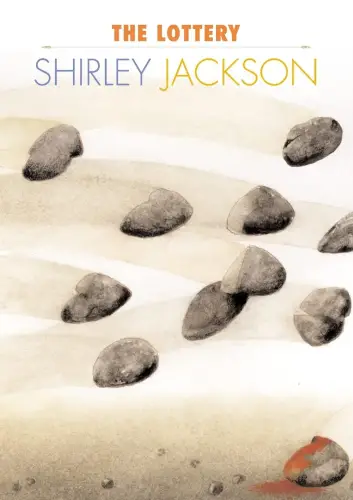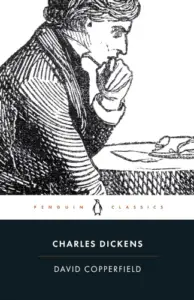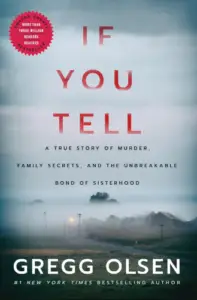The Lottery by Shirley Jackson
Book Author: Shirley Jackson
Summary reviewed by:
Terrence Timmons
Terrence Timmons
Analyst
Bachelor of Arts (BA), University Of California, Santa Barbara 2019
With over 4 years of experience as an analyst. Terrence Timmons is committed to analyzing summaries without compromising on quality.
The Lottery by Shirley Jackson: Summary
What appears to be an ordinary summer ritual hides a haunting secret in Shirley Jackson's "The Lottery," set in a quaint, unnamed village. Every June 27th, the townspeople gather for the annual lottery, a tradition passed down through generations. The story unfolds with meticulous attention to detail, capturing the mundane yet eerie atmosphere of the community. As families assemble, conversations reveal the villagers' varied perspectives on the lottery, some viewing it with skepticism while others uphold it unquestioningly. Jackson masterfully portrays the tension between conformity and individuality, illustrating how societal pressures can obscure moral judgment.
The seemingly benign event is methodically described, from the black box that symbolizes tradition to the nervousness among the participants as names are drawn. Through subtle character interactions and the gradual buildup of unease, readers are drawn into the unsettling reality that lies beneath the surface of this peaceful town. "The Lottery" serves as a powerful commentary on the dangers of blindly following traditions and the potential for cruelty within ordinary people. Jackson's incisive narrative leaves readers contemplating the fine line between civilization and barbarism, making it a timeless and thought-provoking piece that resonates with modern audiences seeking depth and meaning in literature.
Spoilers (watch a short ad to reveal spoilers)
The Lottery by Shirley Jackson: Genres
Allegorical fiction
Dystopian fiction
Psychological thriller
Horror fiction
Social commentary
The Lottery by Shirley Jackson: Main Characters
Tessie Hutchinson
Tessie embodies individuality and resistance against blind conformity. Her initial casual attitude shifts to vehement opposition when she becomes the lottery’s victim, highlighting her desperate struggle for personal justice.
Mr. Summers
As the organizer of the lottery, Mr. Summers represents authority and the maintenance of tradition. His calm and methodical approach underscores the community’s unquestioning adherence to established customs.
Old Man Warner
Warner symbolizes unwavering tradition and skepticism of change. His dismissive attitude towards questioning the lottery reflects the community’s resistance to abandoning long-held practices.
Bill Hutchinson
Bill demonstrates compliance and the prioritization of societal norms over personal relationships. His participation in the lottery, despite familial ties, emphasizes the community’s collective commitment to tradition.
Mrs. Delacroix
Mrs. Delacroix illustrates peer influence and the normalization of violence within the community. Her casual participation and interaction with Tessie before the lottery reveal the pervasive acceptance of the ritual.
The Lottery by Shirley Jackson: Themes
Tradition and Ritual
The story scrutinizes the blind adherence to customs without questioning their morality or purpose. The annual lottery persists solely because it has always been conducted that way, highlighting the dangers of unexamined traditions.
Conformity and Social Pressure
Individuals conform to societal expectations despite personal misgivings. The villagers’ unanimous participation, including family members turning against each other, demonstrates how social pressure can override personal ethics.
Violence and Human Nature
Jackson explores the inherent capacity for cruelty within ordinary people. The casual acceptance of stoning as a communal act reveals the latent violence that can surface under societal sanction.
The Randomness of Persecution
The arbitrary selection of the lottery’s victim underscores the unpredictability and senselessness of persecution. Tessie’s fate illustrates how anyone can become a target, emphasizing the randomness inherent in such rituals.
The Banality of Evil
Evil is portrayed as ordinary and normalized within the community. The mundane setting and everyday characters participating in the lottery reflect how ordinary individuals can perpetuate horrific acts without malicious intent.
The Lottery by Shirley Jackson: What You Need to Know
(Contains Spoilers: Perfect for readers seeking a quick review.)
In Shirley Jackson's "The Lottery," the narrative unfolds in a seemingly idyllic, small-town setting where residents gather annually for a ritual known as the lottery. The story begins on a clear and sunny June day, setting a tranquil backdrop that belies the sinister events to come. Mr. Summers, the local official who oversees the lottery, arrives with a black wooden box, symbolizing the dark tradition they uphold. The townspeople, including men, women, and children, assemble in the village square, engaging in casual conversation that masks their underlying anxiety.
As the lottery commences, families draw slips of paper from the box, with each family selecting one member to participate. The tension builds as names are drawn, revealing the community's collective unease with the impending outcome. Tessie Hutchinson arrives late, jokingly claiming that someone stole her slip, which subtly hints at her eventual role in the story's climax.
The procedure is methodical, with Mr. Summers and Mr. Graves facilitating the process, ensuring that tradition dictates every step without question. The villagers display a mix of nervousness and resignation, reflecting their internal conflict between societal expectations and personal discomfort with the ritual.
When it is Tessie Hutchinson’s turn, her initial lightheartedness gives way to panic as her name is drawn. She protests the fairness of the lottery, accusing the system of being unjust. However, her objections fall on deaf ears as the community collectively turns against her. The true nature of the lottery is horrifyingly revealed: it is a sacrificial ritual where the chosen individual is stoned to death by the villagers, including their own family members.
As Tessie is selected, the atmosphere shifts from mild tension to outright violence. Her husband, Bill, reluctantly participates, emphasizing the oppressive power of tradition over personal bonds. The stoning is carried out with brutal efficiency, illustrating how societal norms can dehumanize individuals and justify extreme actions.
Old Man Warner, the oldest villager, defends the lottery vehemently, dismissing any notion of abandoning the tradition. His unwavering support underscores the community's deep-seated fear of change and the unknown consequences of disrupting long-standing practices.
The story concludes with Tessie’s tragic death, serving as a stark commentary on the dangers of blind conformity and the human capacity for cruelty when sanctioned by society. Jackson masterfully juxtaposes the ordinary setting with the extraordinary horror of the ritual, leaving readers to reflect on the thin veneer of civilization and the potential for darkness within every community.
"For readers preparing for the next exploration of societal norms and human behavior in literature, "The Lottery" stands as a poignant reminder of the importance of questioning traditions and the ethical implications of collective actions. Its enduring relevance continues to provoke thought and discussion, making it an essential piece for understanding the complexities of human nature and societal dynamics."
The Lottery by Shirley Jackson: Methodology
Immersing ourselves in the dark undercurrents of tradition and conformity, our team meticulously analyzed Shirley Jackson's intricate narrative. By dissecting the villagers' unquestioned rituals and the subtle portrayal of human cruelty, we distilled the story’s essence into a clear, engaging summary. Upholding the highest standards of accuracy and clarity, we ensured that each pivotal moment and theme was faithfully represented. This dedication allows readers to swiftly grasp the profound commentary on societal pressures and the latent darkness within communities, offering a truthful and compelling glimpse into Jackson's timeless masterpiece.


The Lottery by Shirley Jackson
Date Published: June 26, 1948
Disclaimer: As an Amazon Associate I earn from qualifying purchases.




